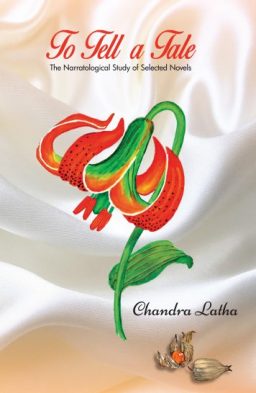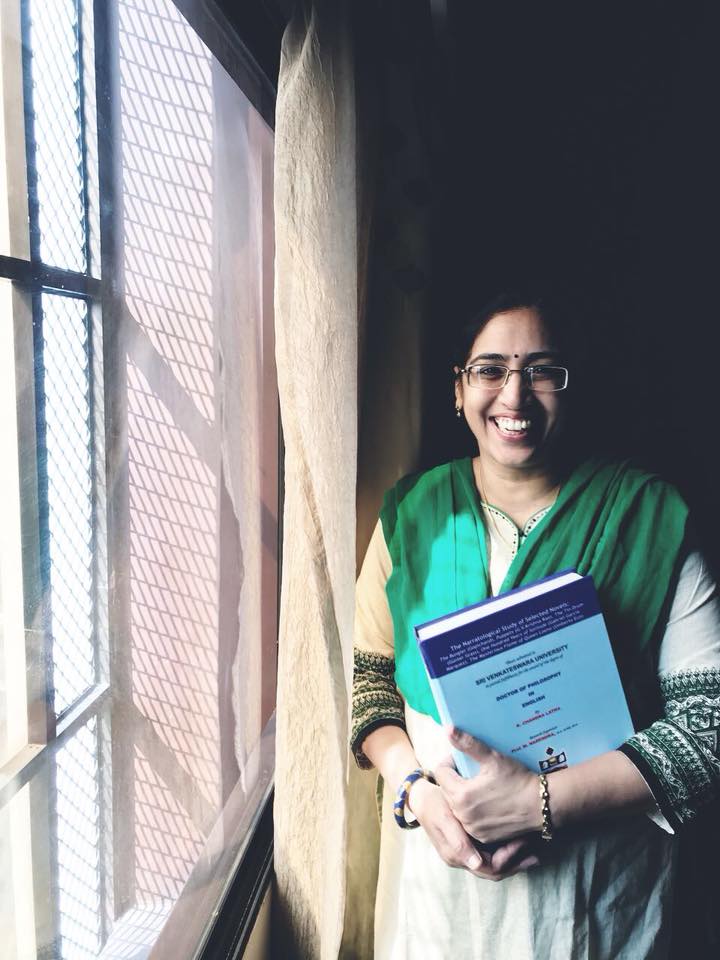
To tell a tale-22
(Chapter-4 Part-3)
-Chandra Latha
The Shattered Glass: The Tin Drum
Günter Grass
Narrative overtones are present throughout the novel. When Oskar was caught and asked to identify himself to the Inter-pole gentlemen who came to arrest him, he said, “I am Jesus.” Nevertheless, I was arrested under the name of Oskar Matzerath.” (The Tin Drum, Pg.587). The biblical references are widely used by the author to elucidate how his non- believer narrator declares himself as a Jesus, and leads a gang, The Dusters, to be violently destructive, not like a Jesus but like a Satan. Nevertheless he is arrested and sent to asylum simply as Oskar not as Jesus or Satan. The hyperbole he indulges in identifying himself reflects the conflict of his perspectives, the view from a certain distance and how others look at his point-of-view. Thus a complex narrative perspective arises out of the conflict between the personal point-of-view of the narrator, I, and the narrative distance created by the self-irony and the irony of the plot expressed in third person narrator, Oskar. The simultaneous presentation of both subjective and objective perspectives makes the novel dialogical and with all its insanity, the most sensible and serious presentation of the intended point.
As an inmate of a mental hospital, Oskar narrates his memoir, the events related to him and his family, facts that he never told before. He speaks from a reflexive and reflective first person point of view, remembering the past from the present with extremely perfect memory. Passing through the lights and shades of life otherwise ignored, a confessional narrative begins from the conception of his mother in the potato patch, to his journey to birth from his mother’s womb with eyes wide open and clear head with great reluctance to enter into the banal world of adults, to the birth of his presumptive son, from the grand father, who put sawmills ablaze and chased by rural constables to himself, Oskar, who was accused, arrested by the Inter-pole gentlemen for the murder of a nurse. It is, of course, a confessional memoir though he denies to confess anything to anyone.
His mother, Agnes Matzerath who has an adulterous relation with her cousin Jan Broski, visits him precisely every Thursday. As it is a violation of the church’s law, she confesses to the priest, “I try – but I can’t.” (http://www.metalasylum.com/ raging bull/movies/tindrum.html)
But, Oskar writes his memoir not to try or change or feel bad about any mischief he did. Whether it’s blinding his teacher or breaking glasses in the doctor’s chamber or his passionate misbehavior with his step-mother Maria, he never hides anything to the reader. The jealous account of murder of two nurses and a doctor and the ultimate murder of Dore Thea and arrest of Oskar are related conspicuously. The Tin Drum raises points to be confessed by every German of the War time and in a way it provokes the narrator’s and reader’s guilt and prepares them for a confession.
In the chapter, The Ring finger, Oskar confesses to Bebra who raised a point, about, Roswitha Raguna, Oskar’s mother, Agnes and presumptive father John Broski, Father Alfred Matzerath. He says, “Is it not true that he drummed his poor mama into her grave?”
“It was I master Berba. I did it; this is a crime, too, I committed: I am not innocent to death. Have mercy !” (The Tin Drum, Pg.553)
This mock-ironic episode is laughed off by Bebra and Oskar himself. Oskar begs mercy, with the sweetness that he knows to be effective and covers his face which he knows is touchingly beautiful, and asks Berba’s mercy. And signs a document and reflects in the tone of Dr. Faustus, not “for the sale of my soul or committed me to some monstrous crime nothing of the sort.”(The Tin Drum, Pg.554) He signed up to drum which eventually makes him popular and star performer, rich and famous. The mock-confession and mercy giving are as religiously presented as to become a curtain raiser for the “Finger” evidence of the murder of Sister Dorethea.
It is appropriate that the picaro himself maintains an inherent adaptability and innocence, being “pragmatic, unprincipled, resilient, solitary and protean, or able to serve many masters.” (Jill Twark. Humor, Satire, and Identity: Eastern German Literature, 1990, Pg.77)
It is Oskar who adapts not to grow after his third birthday and remains as he is, with the innocence of a three year cherubic child face, but his mental abilities are fully developed at the time of his birth itself and Oskar is aware of that. But, he attains the inner mind just like any other young man filled with passions, desires and fantasies about partners. With his innocent three year old boy’s face, he could manipulate and take advantage of Maria, by following her to women’s change rooms and sleeping in her bed, involving her in passionate acts and later considering her son as his child, even though neither Maria nor son ever pay attention to his feelings and considerations. So is Roswitha, as Bebra observes. Roswitha loves Oskar’s cherubic face. But, for the very reason of Oskar being a naive and prankish adult hiding inside an innocent face. His innocence is legitimated by his keeper, Bruno, at the mental asylum, who sends an official report of Oskar’s innocence to his higher authorities, “I personally believe him to be innocent.” (The Tin Drum, Pg. 428)
Oskar is aware of his abilities and masteries. He is a master of many abilities, his drumming and voice can cut glass aesthetically, if not breaking it. When he thinks about what all professions he can handle once discharged out of the mental asylum.
“I am running out of words, and still I cannot help wondering what Oskar is going to do after his inevitable discharge from the mental hospital. Marry? Stay single? Emigrate? Model? Buy a stone quarry? Gather disciples? Found a sect?” (The Tin Drum, Pg. 587)
Oskar was a famous model, tombstone engraver, jazz drummer, successful performer and a gang leader. He singles himself out when he chooses not to grow into the adult world and remain a three year old forever. But, this is not a normal decision applied for physical growth only. He moves freely between the world that is otherwise restricted to him as a grown up young man. With his innocent cherubic face he is able to travel to the women’s changing rooms and ready to fire, journey through dark railway tunnels or the picnics on pillboxes with the same ease. He could walk into the toy-store and the post office with great comfort. He gets the chance to include and exclude himself whenever and wherever he wants beyond all imaginations of the adult world. He remains as an outsider in the society fluctuating in and out of the space and time that he travels.
The end of the picaresque novel usually foreshadows the entire work and provides the vantage point from which every aspect of the work must be studied. Oskar begins his memoir very clearly declaring himself as an inmate of a mental hospital. This is enough to leave the reader in confusion of whether to believe the narrative that is going to spread over several ‘virgin’ pages. (The Tin Drum, Pg. 1) The pretentious tone in the beginning, sheds it’s innocence and unveils the black witch with an indifferent tone leaving the big hint, the inevitable fate of facing the black witch, the guilt of the crime.
Oskar decided not to grow into the adult world and adopt a three year old body, but, even at thirty years, as old as Jesus, he is still afraid of black witches as any three old child. Oskar concludes his memoir quite interestingly:“Words fail me. First she was behind me, Later she kissed my hump, but, now, now and forever, she is in front of me, coming closer.” “Facing me black, Black words, black coat, black money But, if children sing no longer; where is the witch, black as pitch? Here’s the witch, black, wicked witch. Ha! Ha! Ha!” (The Tin Drum, Pg.589)
This passage has the key that Oskar leaves for the reader to unlock the novel. He himself is the witch and the entire narrative is his witch–craft and cuts the raised ring finger. Oskar is a docile German child who lives during the war and post-war and who wants to drum out to his people and hopes them to cry out, without onions. And, ultimately he cannot run away to face the witch.
Oskar’s reflections or the actions recorded thereafter elucidates himself as a perfect rogue with all his destructive pranks, disruptive actions. Some critics like Richard H. Lawson enumerated the variations of Oskar from a classic picaro, a rascal and cunningly industrious individual who lives by his wits. (Frederick Ungar .The Tin Drum,” in Günter Grass, Publishing Co. Inc. 1985, Pg. 19-40, 153-56)
Oskar describes himself as an epic hero with demigod traits due to his ability to survive and even match the threats of Nazism. Oskar calls himself a demigod, as a replica of a hybrid of mythological twins Apollo and Dionysus, one God of Art and Rise the other who intoxicates reason. “Oskar carried on negotiations with his two gods Dionysus and Apollo. …If Apollo strove for was a little demigod whose business it was to harmonize chaos and intoxicate reason. In harmony and Dionysus for drunkenness and chaos, Oskar added to his mortality, he had one advantage over all the full divinities whose characters and careers had been established in the remote past: Oskar could read what he pleased, whereas the gods censored themselves.” (The Tin Drum, Pg. 323)
It is not only the narrator, Oskar, but all other characters, events and incidents, that give the novel the flavor of picaresque.
Gunter Grass mingles different narrative techniques in an unconventional method on a single canvas with a rich surrealist outlook to the narrative. He appears more of a photographer dealing with light and shadow at one place, a sculptor who immerses into the subtle details and a painter sitting in front of the easel and indulging in a fight between the charcoal and the paper.
*****
(Contd..)

Chandra Latha, writer from Nellore won Telugu Association of North America award in 1997 for the novel “Regadi vittulu”. Her other novels are Vardhani(1995) and Vallu veellu paarijaataalu (2011). Her short fiction includes nearly 80 stories compiled in nenu nanna navutha (1996),Idam shareeram (2003) and vivarnam(2007). Her non-fiction are (Fish can fly!) ”vacche daretu(2010), itanala kadaku eeboothi boTlu(2010). And also published her blogposts in a book madata pejee(2010).
